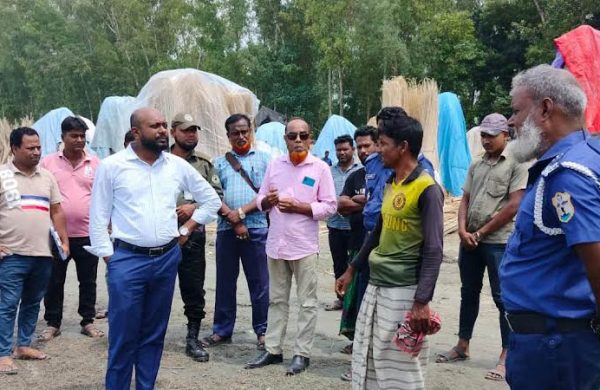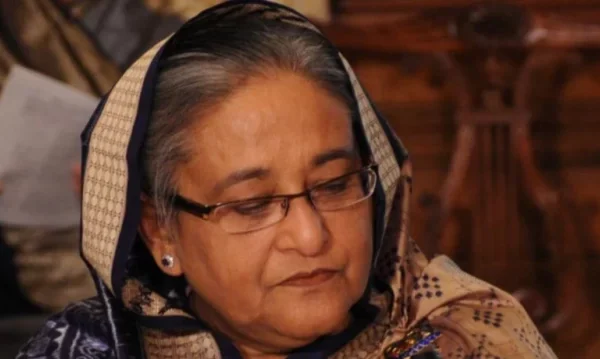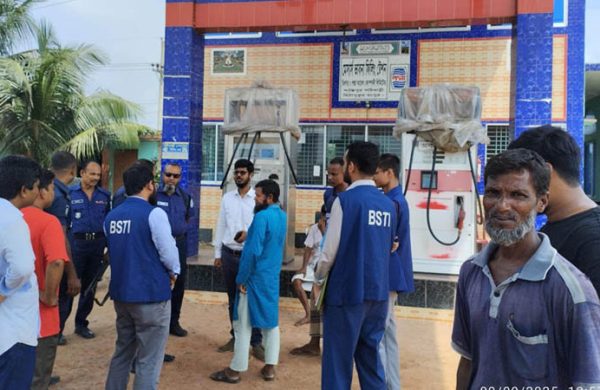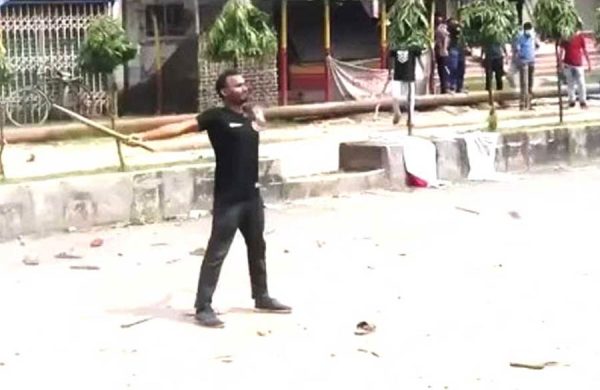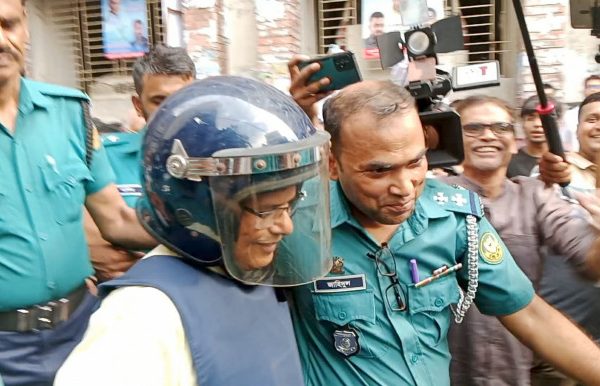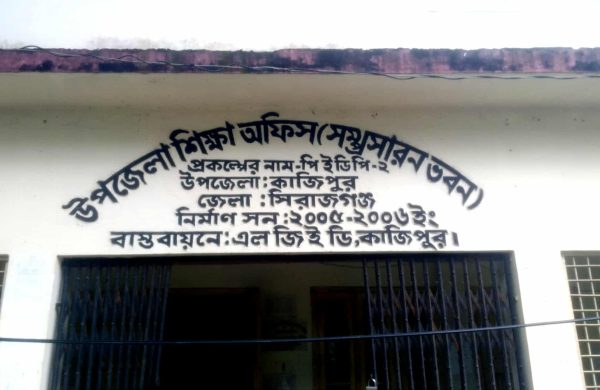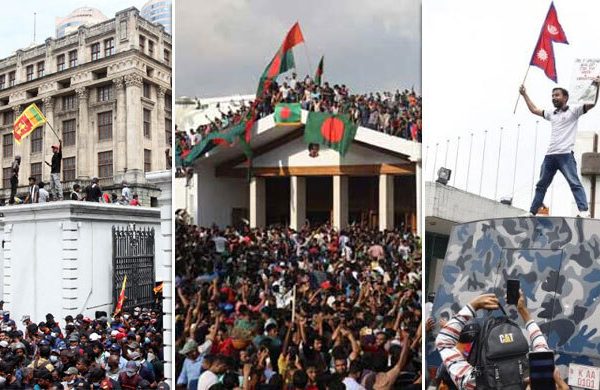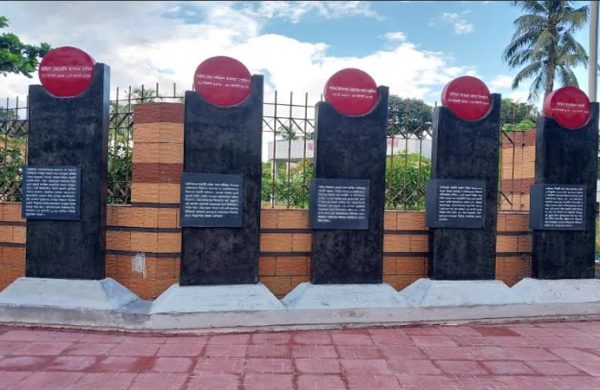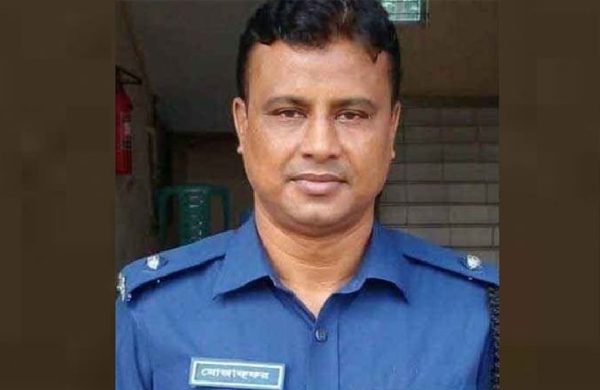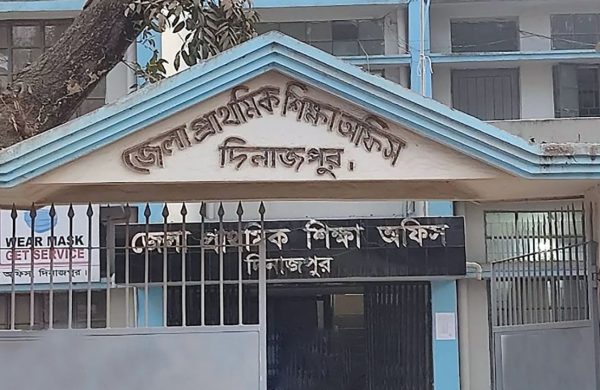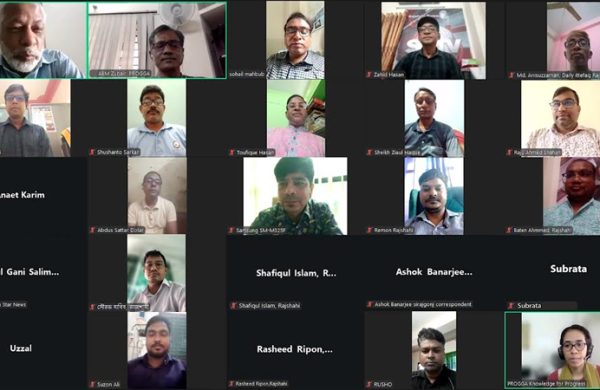Ex-CJ Khairul says ‘not having money isn’t a crime’ as court orders his arrest in graft case
- Update Time : Wednesday, September 10, 2025
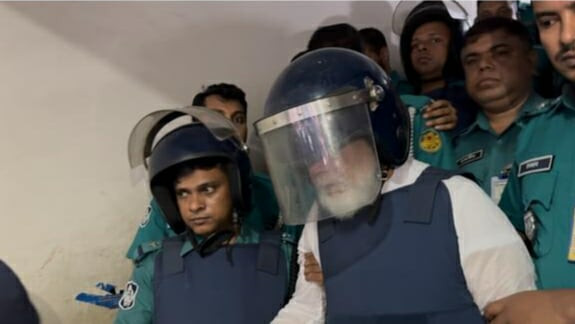
TDS Desk:
Former chief justice ABM Khairul Haque has told a Dhaka court that “not having money is not a crime” during a hearing on whether to place him under arrest in a corruption case over a disputed plot of land.
He said he had informed the Rajdhani Unnayan Kartripakkha (RAJUK), the capital’s development authority, that he would pay the outstanding amount for the plot after retirement, which he later did.
Acting judge Ibrahim Mia of the Dhaka Senior Special Judges’ Court heard an application by the Anti-Corruption Commission (ACC) on Tuesday to show Khairul arrested in the graft case. He later scheduled a further hearing for Wednesday to consider the request.
The former chief justice was brought to court around 10:30am on Wednesday under police escort, wearing a helmet and a bulletproof vest. He was provided with a plastic chair in the defendant’s dock.
After the hearing on his arrest began, he sought permission to speak and the judge called him forward.
“I applied for the plot just like everyone else. It was 22 or 23 years ago, so no one is expected to recall the procedure. At the time, I wrote that I didn’t have money and would pay after I retired as not having money is not a crime,” he told the court.
“I didn’t have that much money, so I informed RAJUK. After retiring, I paid all the remaining money, and then they registered the plot in my name.”
He continued, “I am sick and over 81 years old. I had a heart attack two weeks ago. I hope you will consider these things.”
Khairul also recalled his work after the Rana Plaza building collapse, saying an international commission had been formed with him, human rights activist Sultana Kamal and another individual.
“Our monthly salary was $9,500. We worked for 18 months but didn’t take a single penny. Why? We wanted the money to go to those who were affected by the incident,” he said.
He claimed in court that he had not received any undue benefits.
Following his statement, the court ordered that he be shown arrested in the plot corruption case.
His lawyer, Monaem Nabi Shahin, applied for bail, but this was opposed by ACC prosecutor Hafizur Rahman.
After hearing arguments from both sides, the court denied bail and sent him to prison custody.
Khairul served as chief justice from Oct 1, 2010, to May 17, 2011. An Appellate Division bench led by him delivered a landmark verdict on May 10, 2011, that annulled the 13th Amendment to the Constitution, thereby invalidating the caretaker government system.
After retirement, he was appointed chairman of the Law Commission in July 2013 for a three-year term, which was later extended several times.
He resigned from the Law Commission in August last year after the fall of the Awami League government in the July Uprising.
On Jul 24, detectives arrested Khairul from his residence in Dhaka’s Dhanmondi. He was arrested in a case over the murder of Jubo Dal activist Abdul Qayyum Ahad in Jatrabari during the July movement.
On Jul 29, he was formally arrested in a case filed at Narayanganj’s Fatulla Police Station in connection with the 2011 verdict striking down the caretaker government system.
In that case, Khairul was accused of altering the verdict to annul the 13th Amendment and committing forgery.
On Aug 6, the ACC filed the graft case against him for illicitly acquiring a RAJUK plot.
The case, lodged by ACC Deputy Director Abdullah Al Mamun, names eight people as defendants, including Khairul.
The complaint states that despite owning a six-storey house on an 18-katha plot on Dhaka’s Nayem Road, he misused his power and submitted a false affidavit to obtain a 10-katha plot in the Purbachal residential project.
The ACC alleges that while serving as chief justice, Khairul used false information and deceit to acquire the plot, violating Rule 13 of the Dhaka Improvement Trust (Allotment of Lands) Rules, 1969.
According to the rules, applications for cancelled plots cannot be reconsidered. However, his plot was reinstated despite the cancellation.
“He violated RAJUK’s rules by not paying the instalments and interest within the stipulated time and instead making an interest-free payment five years later. This resulted in a loss of Tk 474,240 in interest to the government, and this money was embezzled,” the case statement read.


